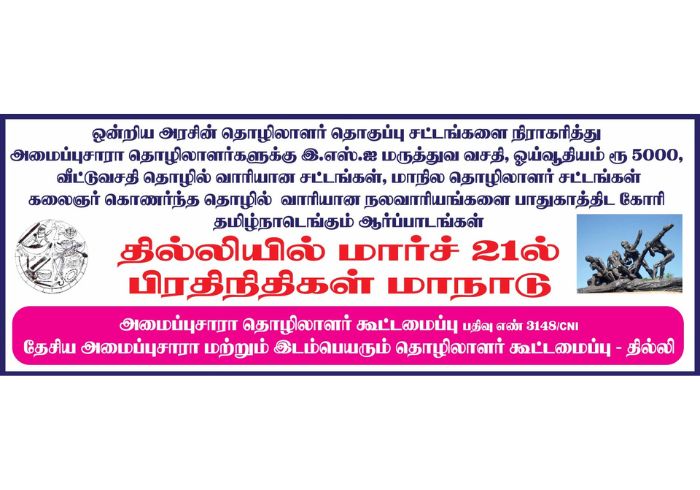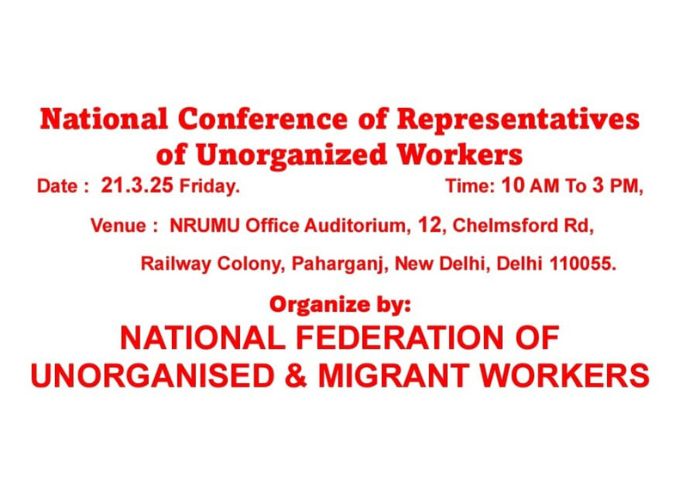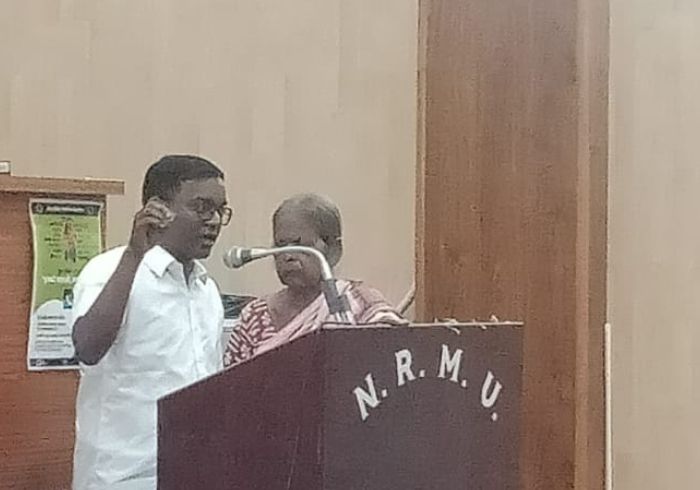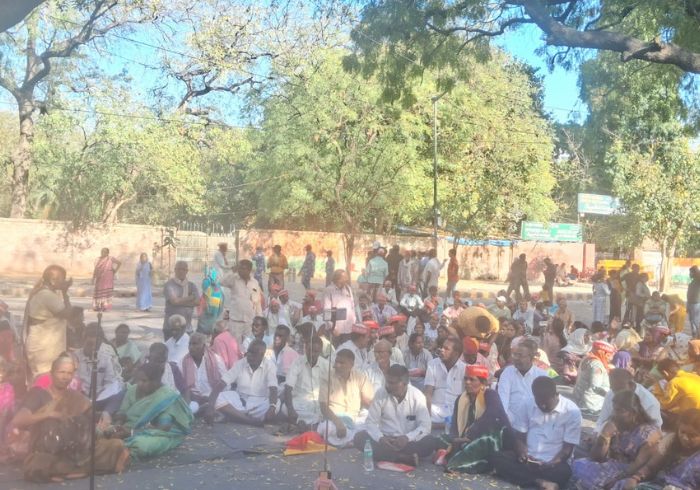National Conference of Representatives of Unorganized Laborers – March 20th and 21st, 2025
21 March, 2025

Introduction
The National Federation of Unorganized and Migrant Workers (NFUMW) successfully organized the National Conference of Representatives of Unorganized Laborers in New Delhi on March 20th and 21st, 2025. This event brought together representatives from across India to discuss critical issues related to unorganized labor, migrant workers, and the challenges they face in the country’s workforce. A total of 72 participants from Tamil Nadu, including a staff member from Don Bosco Migrant Services, were present at the conference.
Key Objectives of the Conference
The primary aim of this conference was to address the pressing issues affecting unorganized laborers, including migrant workers, with a focus on their rights, welfare, and the need for structural reforms to improve their working conditions. The conference provided a platform for sharing knowledge, advocating for policy changes, and strategizing on ways to unite and empower workers from marginalized sectors.
Keynote Address and Discussion Topics
One of the notable speakers at the conference was the staff member from Don Bosco Migrant Services, who discussed several important aspects concerning migrant workers. The following points were highlighted during his presentation:
Unification of Workers
Emphasis was placed on the need for organizing migrant and unorganized workers into strong unions to ensure collective bargaining power. The speaker stressed that unity among workers is essential to safeguard their rights and interests.
Medical and Employee State Insurance Benefits
A significant portion of the discussion was dedicated to the inadequate access to healthcare and social security benefits for unorganized workers. The speaker urged for the expansion of Employee State Insurance (ESI) and the implementation of affordable and accessible healthcare programs for all unorganized workers, particularly migrants.
Monetary Assistance and Financial Security
Another critical point raised was the lack of financial security for migrant workers, who often face delays in wages and are not entitled to adequate compensation during periods of unemployment or illness. The speaker called for the introduction of monetary assistance schemes to provide financial stability to workers during times of crisis.
Housing and Worker Welfare Programs
Housing conditions for migrant workers, especially in urban areas, were highlighted as a major concern. The speaker advocated for affordable housing schemes and the creation of safe living conditions for migrant laborers. Furthermore, there was a call for improved worker welfare programs, focusing on ensuring basic amenities such as sanitation and access to education for migrant families.
Challenges Faced by Migrant Workers
Migrant workers often face numerous challenges, including exploitation, poor working conditions, lack of job security, and vulnerability to abuse. The speaker elaborated on the urgent need to address these issues through comprehensive labor laws and protections for workers in the unorganized sector.
Workers' Rights and Legal Protections
The discussion also focused on strengthening legal protections for workers in the unorganized sector. The speaker advocated for the effective implementation of labor laws that ensure fair wages, safe working environments, and protection against exploitation, with particular emphasis on ensuring that migrant workers are not denied their basic rights.
Improved Working Conditions
One of the key demands highlighted was the improvement of working conditions for unorganized laborers, particularly in sectors such as construction, domestic work, and agriculture. The need for better safety standards, reduced working hours, and proper compensation for overtime was emphasized.
Outcomes and Recommendations
The discussions at the conference led to the formulation of several key recommendations, including:
Creation of Stronger Worker Unions
A call for the formation of stronger unions that can advocate for the rights of unorganized and migrant workers, providing them with a platform to voice their concerns and negotiate better working conditions.
Expansion of Healthcare and Insurance Coverage
The government and employers were urged to expand healthcare and insurance benefits to include migrant workers and other unorganized laborers, ensuring that these workers have access to necessary medical services and financial security in times of need.
Introduction of Welfare Schemes
There was a unanimous call for the introduction of comprehensive worker welfare programs, including affordable housing, childcare facilities, and educational opportunities for migrant workers and their families.
Stronger Legal Protections
The need for stronger legal frameworks to protect migrant workers and ensure fair treatment was emphasized. Participants called for the implementation of existing labor laws and the creation of new policies to protect workers from exploitation.
Monitoring and Enforcement
Participants agreed on the importance of setting up monitoring mechanisms to ensure that existing laws and welfare schemes are effectively implemented. This would include the establishment of local grievance redressal systems to address worker complaints promptly.
Conclusion
The National Conference of Representatives of Unorganized Laborers was a vital platform for highlighting the struggles and challenges faced by unorganized and migrant workers in India. The discussions and recommendations that emerged from the conference are essential for shaping future labor policies and ensuring that the rights and welfare of migrant workers are safeguarded. Moving forward, it is imperative that the government, employers, and worker organizations collaborate to implement the necessary reforms to improve the lives of unorganized laborers and create a more inclusive workforce in India.



